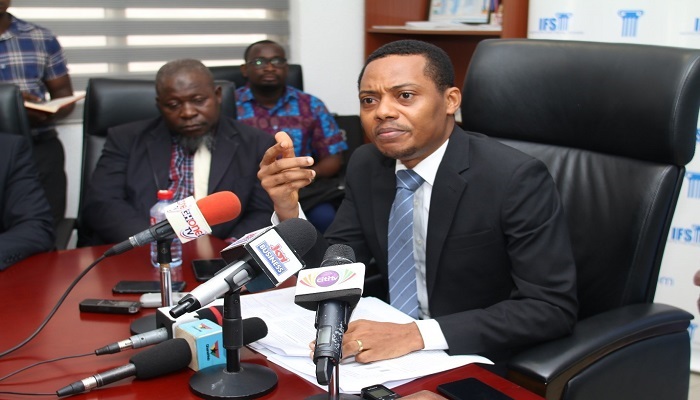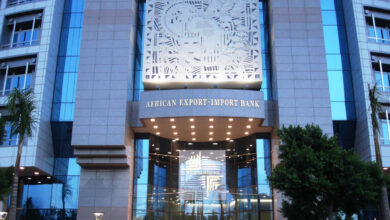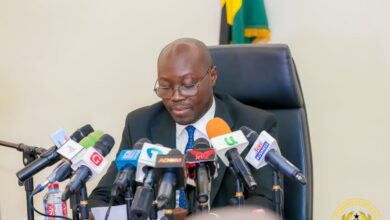
A leading economist from the Institute for Fiscal Studies (IFS), Leslie Mensah, has called on Ghana’s next government to adopt a comprehensive and balanced fiscal strategy to address the country’s economic challenges. Mensah emphasized that the strategy must encompass tax policy reform, expenditure rationalization, and innovative revenue generation to ensure sustainable public finances.
With Ghana grappling with high debt levels and limited fiscal space, Mensah pointed out that tax cuts, while offering relief to businesses and individuals, must be carefully planned to avoid widening fiscal deficits. He highlighted specific revenue streams, such as the COVID-19 levy and e-levy, which generate significant income for the government, warning that their removal without proper alternatives could lead to substantial financial shortfalls.
Leveraging Extractive Industries
Mensah proposed maximizing revenues from Ghana’s rich extractive industries, including mining and oil production, as a sustainable way to reduce the tax burden on individuals and businesses. He noted that increased investment and stronger governance in these sectors could yield significant economic benefits, particularly as global demand for critical minerals grows due to the energy transition.
Policies, he suggested, should focus on optimizing revenues while ensuring equitable distribution and environmental sustainability. Such measures would make tax reduction proposals more credible by situating them within a broader revenue strategy.
Rationalizing Public Spending
A critical aspect of Mensah’s recommendations involves rationalizing public expenditure to identify and eliminate non-essential spending. He urged policymakers to prioritize savings in areas that minimize the need for borrowing. Reducing Ghana’s reliance on debt is essential, he noted, as much of the country’s borrowing in recent years has not been directed toward productive investments, such as infrastructure or education.
Mensah advocated for rethinking debt utilization, emphasizing that future borrowing should align with growth-oriented projects capable of delivering long-term economic benefits.
Caution Against Politically-Driven Tax Cuts
Mensah also criticized tax proposals driven by political motivations rather than fiscal sustainability. He urged leaders to avoid populist policies that prioritize short-term voter appeal over long-term economic stability. Instead, he recommended reforms that balance targeted tax reductions with measures to increase revenue in other sectors.
Key Recommendations
To address Ghana’s fiscal challenges, Mensah outlined several reforms:
- Tax Policy Reform: Implement targeted tax cuts supported by increased revenue from alternative sectors.
- Enhanced Resource Governance: Strengthen policies in the extractive sector to optimize revenue while promoting equitable benefit-sharing.
- Debt Management: Borrow for growth-oriented investments rather than consumption.
Broader Economic Implications
Ghana’s fiscal challenges are compounded by global economic pressures, including rising commodity prices and tighter financial conditions. Mensah emphasized that bold and strategic actions are required to stabilize public finances and restore confidence in the government’s ability to manage the economy.
By adopting a balanced approach to tax, spending, and debt policies, Ghana’s next government could not only address immediate fiscal concerns but also create a solid foundation for long-term economic growth. Mensah concluded that such measures are crucial to reducing the financial burden on citizens and positioning the country for a more stable and prosperous future.




